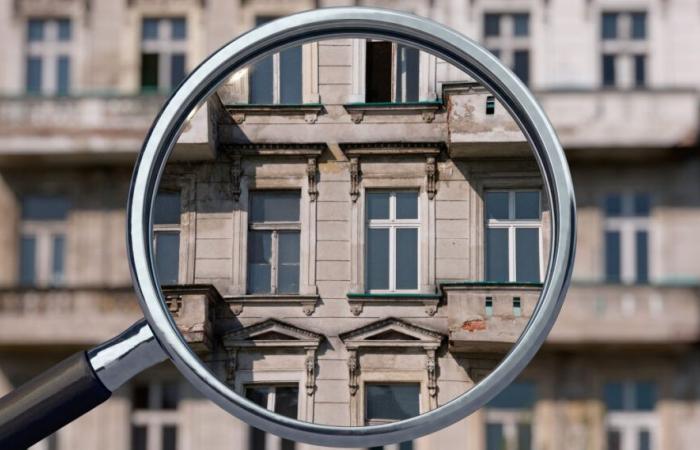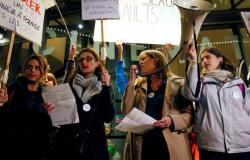“The market continues to decline,” summarized Priscille Caignault, member of the office of the Superior Council of Notaries (CSN), during the presentation to the press of the 2024 Real Estate Report of notaries, mid-December 2024. In fact, the volume of Transactions and sales prices of old housing in France (excluding Mayotte) have recorded a continuous decline this year, both in the building market and in the land market.
After an initial phase of significant contraction in the first quarter, the market recorded “a shudder” in the spring, linked to the anticipation of a reduction in key rates by the European Central Bank (ECB). But “this improvement was stopped abruptly by the announcement of the dissolution of the National Assembly” and was followed by the summer period, which “is not usually favorable” to the real estate market. At the start of the school year, with the two successive cuts in the ECB’s key rates, the fall in prices and sales volume slowed down: “the decline continues, but it is less steep, both in volume and in terms of prices. price “.
Lots of uncertainties for 2025
In terms of forecasts for 2025, the scheduled end of the Pinel law at the end of 2024 (for the acquisition of new housing) and the ban on the rental of the most energy-intensive housing (label G), from this month of January constitute all “negative signs” for the revival of the new or old real estate market. Other economic indicators, such as disinflation and a possible further cut in ECB key rates, “are more encouraging”. But the uncertainties currently hovering on the political level at the national level and geopolitically at the international level make anticipations quite hazardous for the year to come.
Sales down on average by 17% over one year
At the end of September 2024, with 780,000 transactions, the volume of sales of old homes recorded an average drop of 17% over one year. With strong regional disparities: the drop reaches 22%, on average, in the south of the Loire and in Ile-de-France, compared to 11% in the north of the Loire.
As for the prices of old apartments, the change is more marked in Ile-de-France (-5.2%) than in the provinces (-3%). In view of the preliminary contracts signed, “the decline should continue in Ile-de-France and stabilize in the provinces”, specified Frédéric Violeau, notary in charge of national real estate statistics for the CSN. The price of old houses followed an almost identical trend, with the same disparity between the Paris region and the provinces, and the same tendency towards stabilization at the end of the year in the regions.
A “correction effect” in large cities where prices had increased significantly
In large cities, the price of old apartments has thus recorded “a correction effect” over five years: “the strongest price drops hit the cities which had benefited from a strong increase,” he explained. . At the end of September 2024, the median price per square meter stood at 9,490 euros in Paris (-6.7%, over one year), ahead of Nice (4,720 euros, where prices have not fallen), Lyon (4,500 euros, -8.6%), Bordeaux (4,250 euros, -7.5%), Lille (3,640 euros, -7%), Rennes (3,590 euros) and Nantes (3,450 euros, -9.2%). Notaries note an identical downward trend for old houses in all major cities.
The impact of the green value of housing on prices
The importance of the energy label (DPE) is increasingly felt in the market for old housing, although there are strong geographical disparities. The impact is in fact less strong on tight markets and in places less exposed to the cold. The sharp increase in the share of energy-intensive housing sold in 2022, just after the publication of the decree banning rental, gradually dissipated in 2023 and 2024. But the impact of the energy label on prices continued to increase, for apartments as well as for old houses.
Sales of building land have halved over one year
Finally, in the current context of the new housing crisis, the market for building land (serviced or serviceable) is in free fall. Between the third quarter of 2023 and the third quarter of 2024, sales of building land fell by half over twelve months. The decision to renew the zero-rate loan only for the purchase of new housing in the collective, which is part of the objective of zero net artificialization of land (Zan), will not contribute to relaunching this market in the short term. term.






